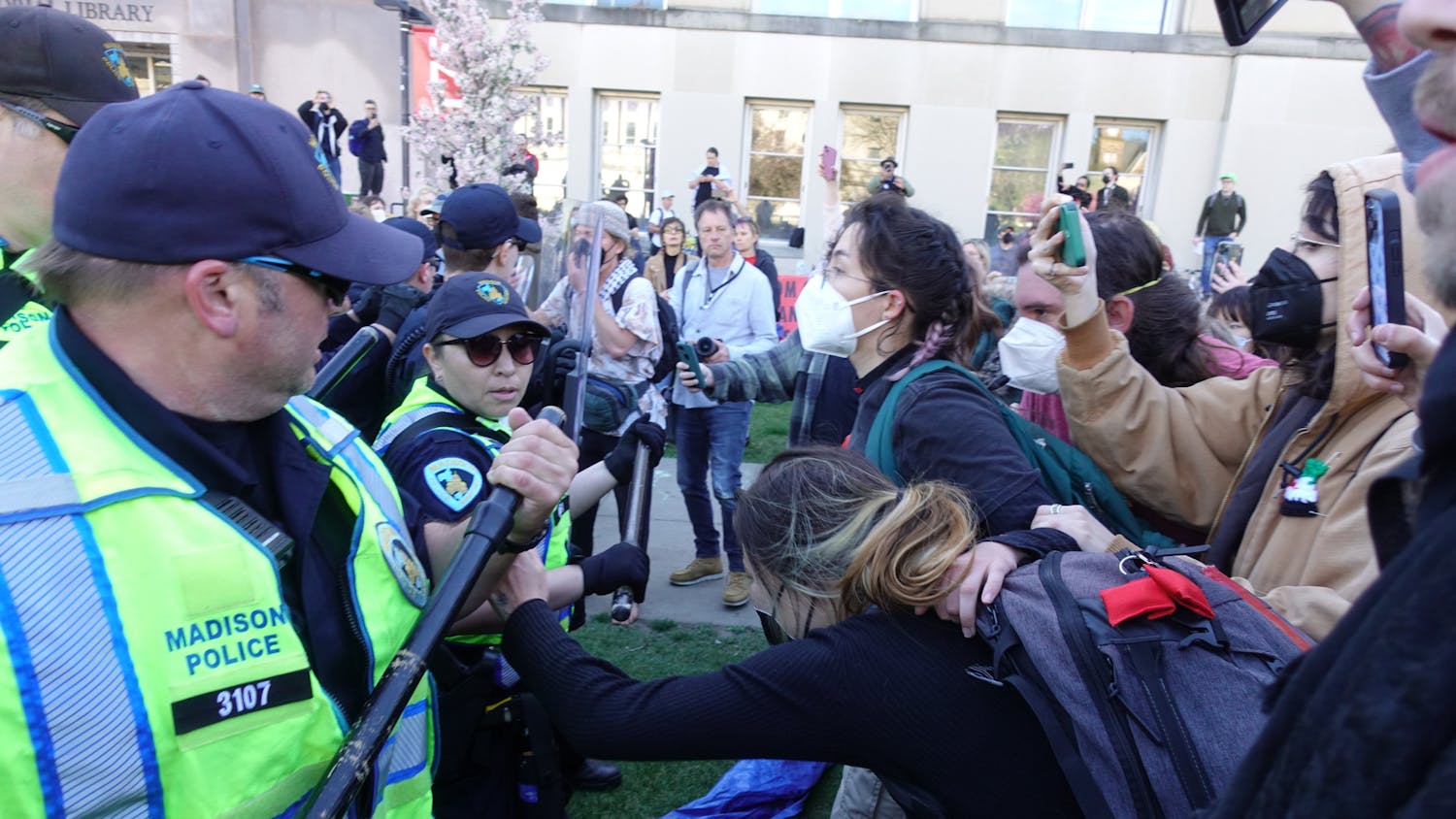Samantha Skenandore urged hundreds to reflect on the land they inhabit Monday night — land that was stolen.
The UW-Madison alum returned to campus as part of the Wisconsin Union Directorate’s Distinguished Lecture Series, addressing an audience of nearly one thousand, according to the university.
Skenandore, a member of the Ho-Chunk Nation and federal lawyer of 15 years, specializes in Indian law and tribal law. Still, she reminded the audience that she was once a Badger too, “huffing and puffing” up Bascom Hill.
But that’s not what she came to talk about.
“I am here to tell you that the land we talk about today was stolen,” Skenandore said. “This is how colonial dominance works. You divide and conquer. You take the land. You instill fear. You force assimilation. And when you can’t do that, you destroy it or destroy them.”
The University of Wisconsin-Madison occupies Ho-Chunk land — territory known as Teejop, Skenandore said. In 1832, the Ho-Chunk were forced to surrender the territory and decades of ethnic cleansing followed, seeking to forcibly remove the tribe from Wisconsin.
“This history of colonization informs our shared future of collaboration and innovation,” said Lorenzo Gudino, the introductory speaker. “Today, UW-Madison respects the inherent sovereignty of the Ho-Chunk nation.”
Though, UW-Madison has not always done so.
Provost Scholz took the stage shortly before Skenandore, noting that many members of the university community have only recently learned the history of the land they walk, work and live on.
“We, as an institution, have not historically been mindful of our relationship with the people who were here before us,” Scholz said. “We are working to change that.”
Skenandore’s lecture is part of an ongoing series through 2020 entitled “Our Shared Future.” It aims to shed light on the history and traditions of the Ho-Chunk on the UW-Madison campus.
Ald. Michael Tierney, District 16, oversees Ho-Chunk Gaming Madison and the surrounding casino area and serves as the city’s representative on the Ho-Chunk Committee. Even before he took the position on city council, he worked in state legislature preventing bills that would destroy indigenous land.
“In this fast-paced world, the [Ho-Chunk’s history] is often something we can find ourselves overlooking,” Tierney said. “There’s a need for us to be allied with the members of Ho-Chunk Nation, to help inform on their rich heritage.”
Skenandore went on to emphasize the importance of cultural property, as it holds “immeasurable value.” She encouraged her audience to be mindful of historic indigenous sites — places students probably aren’t aware once existed as burial mounds — like Picnic Point and Vilas Park and to explore them.
“These spaces are sacred,” Skenandore told her audience. “They were meant for you to go to them, to sit next to them, to think and grow and be part of them and take them in.”






